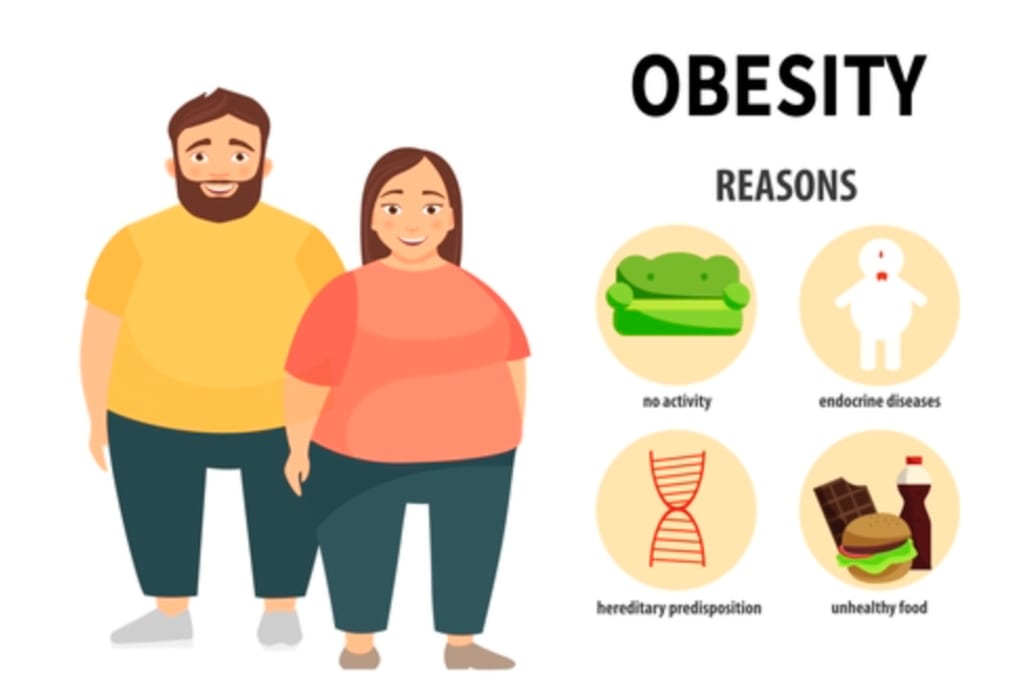Unveiling the Hidden Culprits
Surprising Factors Behind the Obesity Epidemic

Obesity has become a global epidemic, affecting millions of people worldwide. While poor diet and lack of exercise are commonly attributed to weight gain, there are several surprising factors that contribute to this alarming trend. In this article, we will explore some lesser-known but significant reasons behind the obesity epidemic and how they impact our lives.
1.The Impact of Food Marketing:
One often overlooked factor in the obesity epidemic is the influence of food marketing. Companies spend billions of dollars annually on advertisements that promote unhealthy, calorie-dense foods. These marketing strategies target vulnerable populations, including children, who are more susceptible to persuasive tactics. From flashy commercials to enticing packaging, these tactics shape our food choices and contribute to excessive calorie consumption.
2.Sleep Deprivation and Obesity:
The correlation between sleep deprivation and obesity has gained attention in recent years. Lack of sufficient sleep affects hormone regulation, leading to an increase in appetite and cravings for high-calorie foods. Moreover, sleep deprivation hampers energy levels, reducing motivation for physical activity. In our fast-paced, modern society, sleep often takes a backseat, making it a hidden contributor to weight gain.
3.Environmental Factors:
Our surroundings play a significant role in shaping our lifestyle choices, including diet and physical activity. For instance, the accessibility of fast food restaurants and the proliferation of processed foods in supermarkets make unhealthy options more readily available. Additionally, sedentary jobs and the lack of opportunities for physical activity due to urbanization contribute to a more sedentary lifestyle.
4.Emotional Eating and Stress:
Emotional eating is another aspect that often goes unnoticed when discussing obesity. Many people turn to food as a source of comfort or stress relief, leading to excessive calorie intake. Stress also triggers the release of cortisol, a hormone that promotes fat storage, especially in the abdominal area. Understanding the emotional triggers behind overeating and finding healthier coping mechanisms is crucial in combating obesity.
5.Medications and Weight Gain:
Certain medications, such as antidepressants, antipsychotics, and corticosteroids, have been linked to weight gain. While these medications provide essential benefits for individuals with specific health conditions, the associated weight gain can be a significant concern. It is important for healthcare providers to discuss potential side effects and work with patients to mitigate the impact on weight management.
6.Genetics
Genetic changes in human populations occur too slowly to be responsible for the obesity epidemic. Yet variants in several genes may contribute to obesity by increasing hunger and food intake. Rarely, a specific variant of a single gene (monogenic obesity) causes a clear pattern of inherited obesity within a family.
7.Stress
Stress can significantly impact your ability to maintain a healthy weight. It can also prevent you from losing weight. Whether it's the result of high levels of the stress hormone cortisol, unhealthy stress-induced behaviors, or a combination of the two, the link between stress and weight gain is glaring. Self-care strategies like mindfulness, journaling, and exercise can help you fight stress and the unwanted effect it can have on your eating habits.
Conclusion:
The obesity epidemic is a complex issue with multiple contributing factors beyond diet and exercise. By shedding light on these hidden culprits, we can develop a more comprehensive approach to tackling obesity. Awareness of the influence of food marketing, the importance of adequate sleep, the impact of our environment, the role of emotional eating and stress, and the effects of certain medications can empower individuals to make informed choices and take proactive steps towards a healthier lifestyle.
As individuals, we can be more mindful of the advertisements we encounter, prioritize sufficient sleep, advocate for healthier food options in our communities, develop healthier coping mechanisms for emotional triggers, and work closely with healthcare providers to explore alternative medications or manage potential weight gain. By addressing these surprising factors, we can make a significant impact on the obesity epidemic and improve the overall well-being of individuals and societies around the world.






Comments
There are no comments for this story
Be the first to respond and start the conversation.